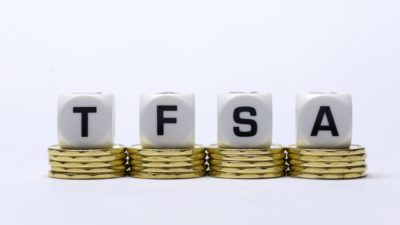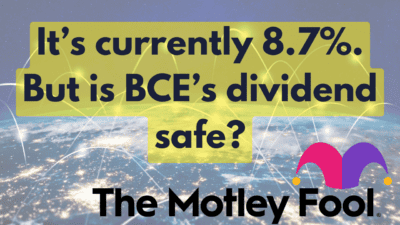The Federal Government’s announcement that it was lending Bombardier, Inc. (TSX:BBD.B) $372.5 million in interest-free loans over the next four years to help keep the development of both the Global 7000 business jet and CSeries commercial aircraft flying higher was a victory for the company and its employees, but it will most certainly come at a cost to the Canadian taxpayer.
“I think the government is throwing good money at a bad project. Mismanagement. Mis-marketing. It’s just not a good situation,” said Barry Schwartz, chief investment officer, Baskin Wealth Management, on BNN. “And family dynamics [dual-class share structure] aside, I just don’t think this is the right company that the Canadian government should be propping up.”
I couldn’t agree more.
Bombardier’s entire modus operandi is to pester various levels of government until they cave to the company’s requests. In this case, the feds balked slightly, giving it about one-third of the amount it was originally looking for. Here’s to small victories for taxpayers everywhere.
Western Canada should be furious about this clear case of favouritism. We sold out the aerospace industry in Canada a long time ago, but now the Federal Government considers it wise to prop up Bombardier and its poorly performing aircraft. That’s nuts.
There is, however, a template for how companies should behave when it comes to financing expensive projects. Think Ford Motor Company (NYSE:F), which didn’t receive bailout funds from the U.S. Federal Government, which invested US$80.7 billion in General Motors and Fiat Chrysler between 2009 and 2013.
The bailout ended up costing U.S. taxpayers US$9.2 billion after the Federal Government sold its shares in both companies.
Now, before all you GM fans start freaking out about the truth, Ford did receive funds during this five-year period, but none from the Troubled Assets Recovery Program (TARP), which is what saved both of its competitors.
First, Ford got a US$9 billion line of credit from the feds in return for guaranteeing it would invest US$14 billion in new technologies. Second, it got a $5.9 billion loan from the Department of Energy’s Advanced Technology Vehicles Manufacturing program, funds that were used to further develop hybrid and battery-powered vehicles; about US$2.8 billion is still outstanding.
Opponents of the US$14.9 billion have said that it proves that not even Ford was able to turn down the easy money provided by the Federal Government. However, the interest rates on both loans work out to around 2.3%; the last time I looked, that isn’t interest-free.
In addition, the company borrowed US$25 billion in November 2006 to meet near- and medium-term operating losses, using every asset it had as collateral including its iconic blue oval logo.
CEO Alan Mulally bet the farm on a Ford revival; today, it’s in a much stronger financial position as a result, although it’s not out of the woods entirely.
This leads me back to Bombardier.
It doesn’t matter how much money the various levels of government give this company; it will always be fighting a losing battle.
I find it hard to believe that less than half-a-billion dollars is the answer to all of its problems. Shoddy workmanship, serious delays in production schedules, and a slew of irate customers in its train business continue to haunt the company.
Furthermore, I have serious doubts that this loan will be enough to convince potential customers that the CSeries is the second coming of Christ. It’s a plane with a limited track record — no more, no less.
If its product is so great, CEO Alain Bellemare should be able to get the necessary funding from our wonderful Canadian banks.
If they’re not willing to stand up for Bombardier, why should you?







